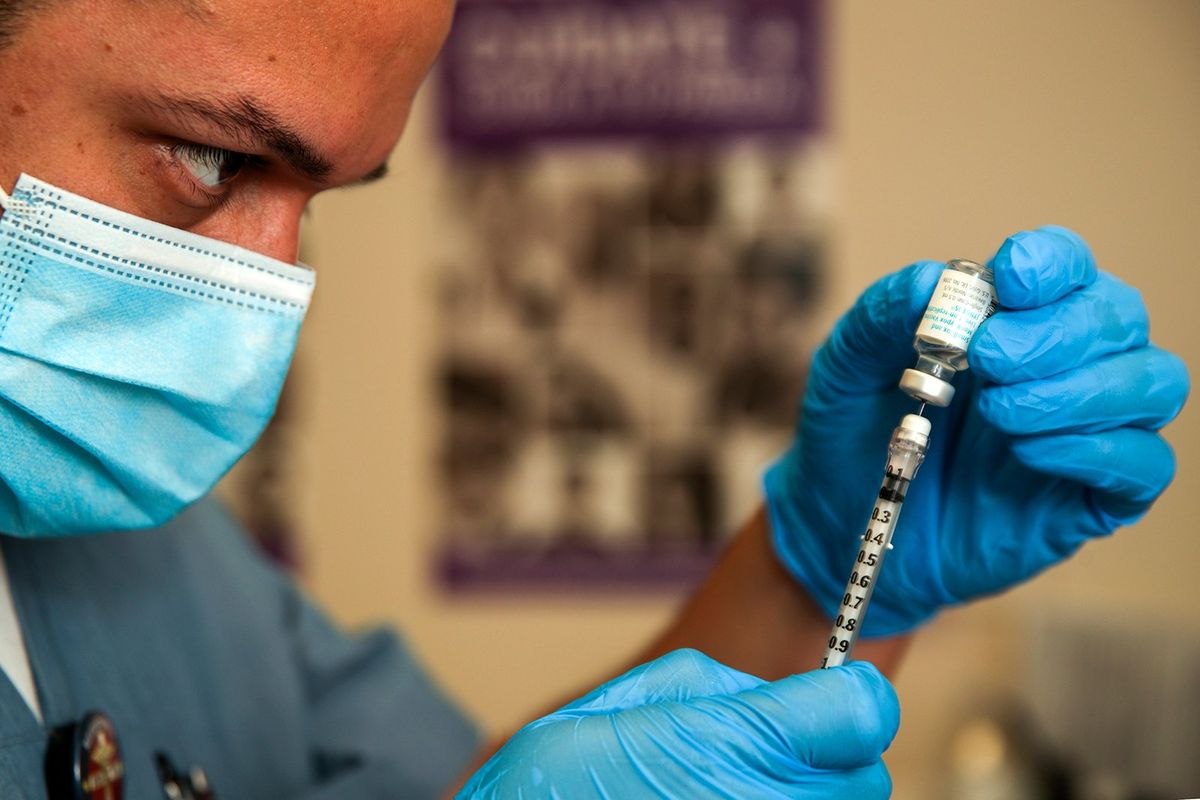WHO declares mpox a global health emergency as African outbreak grows

The World Health Organization on Wednesday again declared mpox an international health emergency in response to a growing outbreak in Africa, renewing deep concerns about a virus that had seized global attention two years ago.
The declaration comes after suspected and confirmed cases in Africa exceeded 15,000 this year, exceeding the toll in all of 2023. Infections reached record highs in the Democratic Republic of Congo, where the virus has been endemic for decades and the vast majority of African cases are concentrated. A new form of the virus, known as clade 1b, has spilled into eastern parts of the African nation and has been reported in other countries for the first time, including Kenya, Rwanda and Uganda.
“The detection and rapid spread of a new clade of mpox in eastern DRC, its detection in neighboring countries that had not previously reported mpox, and the potential for further spread within Africa and beyond is very worrying,” WHO Director General Tedros Adhanom Ghebreyesus said Wednesday. “In addition to other outbreaks of other clades of mpox in other parts of Africa, it’s clear that a coordinated international response is essential to stop these outbreaks and save lives.”
Tedros’s decision came shortly after a committee he convened recommended issuing the highest level of alarm under international health law and a day after the Africa Centers for Disease Control and Prevention declared mpox a public health emergency of regional security. Emergency declarations help to marshal funding for a public health response and pressure governments to ramp up action.
The WHO previously declared mpox an international health emergency in 2022 in response to an outbreak that mostly affected gay and bisexual men across the globe. Cases in that outbreak plunged after a campaign to deliver vaccines, but the virus has persisted in parts of Africa where the virus has been endemic and vaccines are not available.
Mpox is a zoonotic virus that causes flu-like symptoms and a rash with painful lesions. It was formerly known as monkeypox, but officials changed the name because it is inaccurate (scientists now believe the virus originates in rodents) and stigmatizing by associating a disease disproportionately affecting Black people with a slur used against them.
The virus spreads through exposure to infected animals and skin-to-skin contact. Contact during sex emerged as the most effective way for the virus to spread quickly during the 2022 outbreak, and officials are concerned that the new version of the virus appearing in new countries is transmitting that way with the potential to seed larger outbreaks.
Clade 1b causes more severe illness than the clade 2 viruses that drove the last global outbreak, but it does not appear to be deadlier than the clade 1 form of mpox that has long been endemic in Congo. Congolese officials have recorded 13,800 suspected and confirmed cases and 450 deaths, with children younger than 15 accounting for 68% of cases and 85% of deaths, according to the Africa CDC.
Christina L. Hutson, chief of the CDC’s poxvirus and rabies branch, said some of the cases in Congo suspected to be mpox could be other illnesses that cause rashes, including chickenpox and measles.
The declaration of a global health emergency in response to the outbreak in Africa comes after criticism that the world has been slow to address a long-standing infectious-disease threat in poorer countries.
Vaccine manufacturers and other experts say the causes of the inequities are not simply a case of wealthy countries hoarding shots. Congo and other countries where the virus is endemic have not licensed mpox vaccines, and their health care systems are often overwhelmed by competing priorities, including Ebola and HIV. Some of the communities hit hardest by mpox are in rural swaths of the country or in displacement camps where the logistics of distributing vaccines are complicated.
But now officials are mobilizing to start distributing vaccines in Congo later this year to people at elevated risk, pending regulatory approval.
In the United States, mpox is circulating at low levels with about three new cases a day after peaking at more than 450 cases a day in August 2022.
- – -
Graphic: https://washingtonpost.com/documents/525a40d3-2ef3-4046-8352-2be01aa8e2ac.pdf